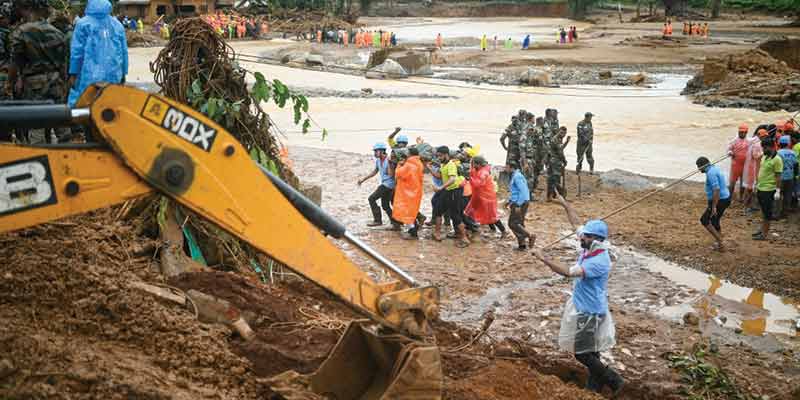- India
- Jul 31
- Kevin Savio Antony
Climate scientist links warming of Arabian Sea to Wayanad landslides
• Warming of the Arabian Sea is allowing the formation of deep cloud systems, leading to extremely heavy rainfall in Kerala in a shorter period and increasing the possibility of landslides, a senior climate scientist said.
• Extremely heavy rain triggered a series of landslides in the hilly areas of Kerala’s Wayanad district leaving at least 171 people dead. Many were feared trapped under the debris.
Key findings of the study:
• Increased Convective Rainfall: The study published by Climate and Atmospheric Science journal in 2022 found that rainfall over the west coast of India is becoming more convective. Convective rainfall is characterised by the rapid upward movement of warm, moist air, leading to the formation of deep, heavy rain-bearing clouds.
• Southward Shift of Heavy Rainfall Hotspots: Research from IIT-M and IMD, published in Elsevier in 2021, indicated that one of the hotspots of heavy rainfall in the Konkan region (between 14 degrees north and 16 degrees north) seems to have shifted southward. This shift has potentially fatal consequences, as areas that were previously less affected by heavy rainfall are now experiencing more intense and frequent rain events.
• Link to Climate Change: The study found that the warming of the southeast Arabian Sea is causing the atmosphere above this region, including Kerala, to become thermodynamically unstable. This instability is linked to climate change, which is altering weather patterns and increasing the frequency and intensity of extreme weather events.
• Increased Rainfall Intensity and Landslide Risk: An increase in rainfall intensity suggests a rising probability of landslides in the high to mid-land slopes of the Western Ghats in eastern Kerala during the monsoon seasons. This is due to the saturated soil conditions and the formation of deep mesoscale cloud systems that bring extremely heavy rain in short periods.
• Historical Comparison: The deep cloud systems forming off the coast in the Arabian Sea, similar to those observed during the 2019 Kerala floods, indicate a trend of increasingly severe weather events. These systems sometimes intrude into the land, leading to localized heavy rainfall and associated natural disasters.
• Rainfall Data: Several automatic weather stations recorded significant rainfall amounts, with some stations reporting more than 30 cm of rain in 24 hours. This data highlights the extreme nature of recent rainfall events and the potential for future occurrences.
(The author is a trainer for Civil Services aspirants.)

